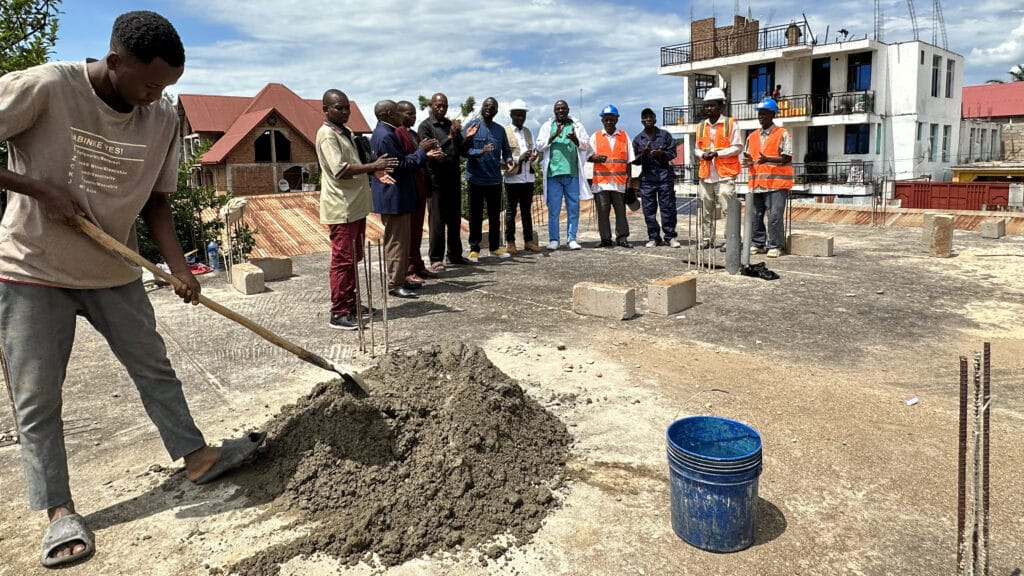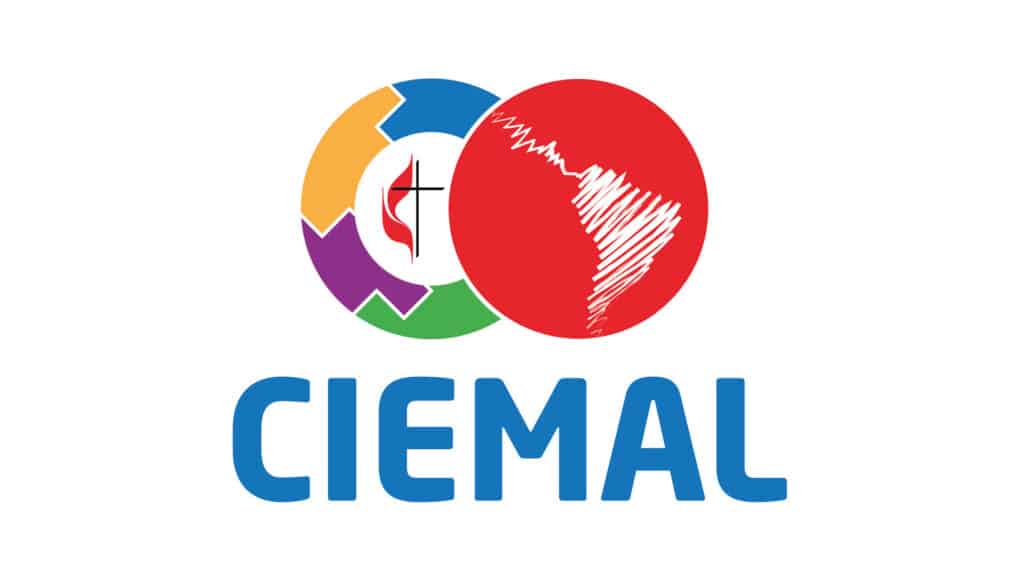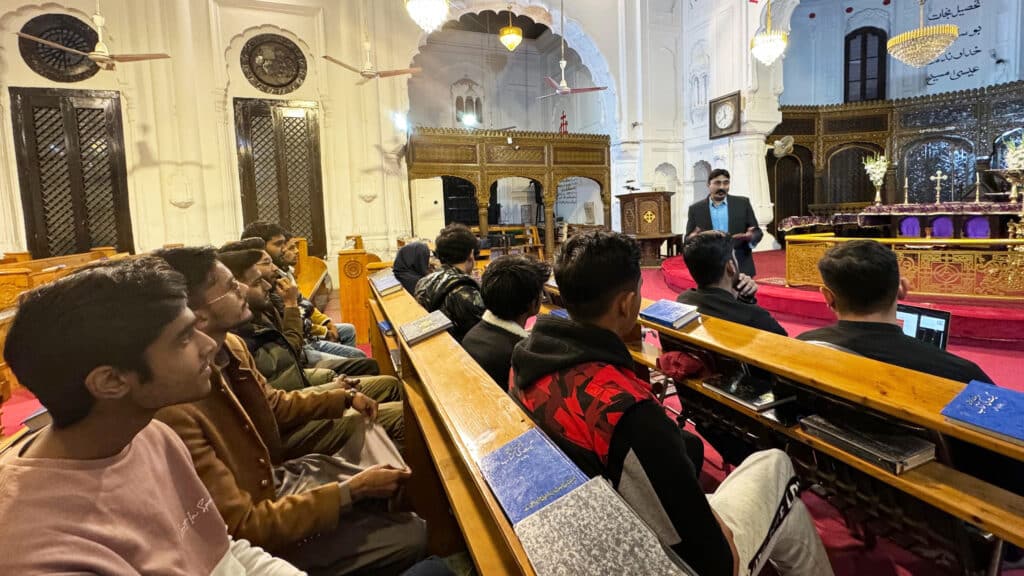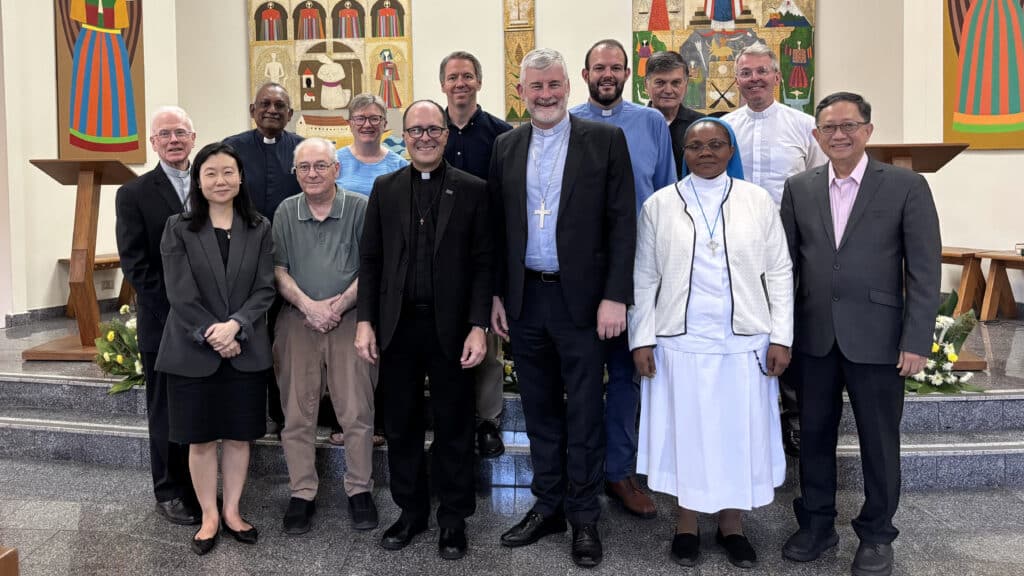For several years, Global Ministries has accompanied the East Congo Episcopal Area with grants and resources to serve people displaced by regional violence and destruction. This story, covering health services and infrastructure in the region, is Part Two of a two-part series. Part One, on UMCOR’s relief and recovery assistance, can be found here.
“I lost everything in the conflict …I have regained hope to rebuild my life and that of my children. Thank you for giving me hope. God bless you.”
a 50-year-old widow from North Kivu
HARARE, ZIMBABWE – For over 30 years Goma, in the eastern Democratic Republic of Congo, has endured a relentless humanitarian crisis, worsened by renewed conflict involving M23 rebels (a Congolese Rwandan-backed paramilitary group) and other armed groups.
The crisis has led to the collapse of public institutions, destruction of hospitals and the forcible displacement of more than 4 million people at times, many of whom are in overcrowded camps plagued by poor sanitation and outbreaks of cholera and mpox.
Pregnant women and children have suffered most, facing hunger, health challenges, possible abuse, lack of shelter and intercultural tensions. Many women have suffered sexual violence, which is prevalent in the war-torn region.
Amid this despair, United Methodist health and disaster response ministries have emerged as beacons of hope, with Global Ministries investing $7 million in health interventions from 2017 to 2024, and $2.3 million in humanitarian support since 2018.
Before external help arrived, the local church community took action. “With limited resources, we shared what little we had, offering shelter and spiritual support,” Bishop Gabriel Yemba Unda recalled. He recently retired after serving as bishop since 2012. “Through prayer and solidarity, we found strength to persevere.”
Grant funding transformed the response, providing food, shelter, hygiene kits, a solar-powered well improving access to clean water, psychological support and small income-generating projects “that are restoring life and hope,” the bishop said.
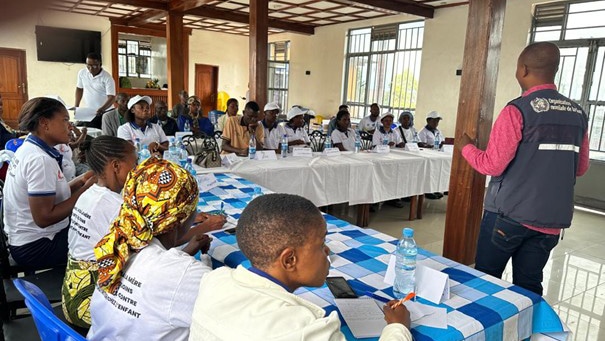
Global Ministries’ interventions through the local UMC health facilities and the East Congo Disaster Response Office led to economic recovery and social rehabilitation. Prayer groups, mutual aid networks and hygiene awareness campaigns continue to strengthen resilience in Goma and surrounding communities.
The church’s work has made all the difference for Kavira,* a 50-year-old widow from North Kivu, who was displaced with her household of 15. She received food rations – rice, corn flour, oil, salt, beans – and hygiene products, along with psychological and spiritual support.
“I lost everything in the conflict. Thankfully, all 15 of us are alive,” she said. “I did not know where to start as a widow with all these responsibilities. Fortunately, through the intervention, I received enough food for the first time in a long time. I have regained hope to rebuild my life and that of my children. Thank you for giving me hope.”
Rebuilding health care
Sylvestre Muthoma, chair of the church’s East Congo Health Board, described the devastating impact of the conflict on health infrastructure. “Hospitals and health centers were partially destroyed or are operating with very limited capacity.
“The availability of health care services was insufficient,” he said. “This exposed the population to increased risks of preventable morbidity and mortality.
“Water and sanitation conditions were precarious,” Muthoma continued, “contributing to the regular resurgence of epidemics such as cholera, measles, localized outbreaks of Ebola and other infections.
With $7 million from Global Ministries, projects were launched to restore essential health services and reduce health vulnerabilities across the region.
Dr. Damas Lushima, with the East Congo Health Board, emphasized the multifaceted approach to strengthening health care. The United Methodist health system in the area comprises 81 facilities, of which 30 receive support from Global Ministries.
Lushima explained: “We started by repairing and rehabilitating health infrastructure (two hospitals and 30 health centers), renovation of consultation units, operating rooms, maternity and pediatric wards, inpatient facilities, and restoration of electricity and water systems to ensure safe and continuous care. Support included essential medicines, surgical kits, sterilization materials, and diagnostic tools to enable immediate and sustainable patient care.”
More than 3,000 acute and chronically malnourished children have received treatment at hospital centers in Irambo, Majengo and Mangobo, and at Tunda Hospital, he said. “We have expanded care to Uvira Clinic, (and) Nyamianda Health and Baraka Health centers. We remain committed to ensuring every child suffering from malnutrition receives timely, quality care through strengthened efforts and broader health facility coverage,” Lushima said.
“On workforce development,” he continued, “we focused on ongoing training for nurses, midwives and doctors in clinical care, emergency management and
infection control, with on-site supervision to improve quality.
“We have seen improved access to health services, reduced preventable diseases, strengthened local capacity and sustainable sanitary conditions that enhanced resilience against future epidemics,” Lushima said.
Clean water, changed lives
The church’s Water, Sanitation and Hygiene (WASH) initiatives, with Global Ministries’ grant support, have improved access to clean water. “We constructed potable water points, sanitation facilities and launched hygiene awareness campaigns to prevent waterborne diseases,” Lushima said.
Lombe Kilwa PenaKole, a traditional chief from Okasa in Kibombo District, praised the installation of a borehole in his area.
“My community suffered from water-related diseases,” he said. “We are extremely grateful to The United Methodist Church and Global Health. This solar-powered well is changing lives. We are committed to maintaining it to ensure sustainability.”
*Full names and exact locations of beneficiaries changed.
Kudzai Chingwe is a communicator for the Zimbabwe East Conference. She collaborated with East Congo Conference communicators for reporting from Goma and surrounding areas.
The United Methodist Committee on Relief (UMCOR) international disaster response and recovery efforts serves as the primary channel for United Methodist assistance for disasters that strike outside of the United States. Global Ministries’ Global Health program concentrates on strengthening health systems through United Methodist health facilities and preventing, testing and treat those affected by preventable diseases, supporting the most vulnerable populations, including mothers, newborns and children.
You can make gifts to help UMCOR and Global Health provide for the basic needs of people and communities devastated by both natural and humanmade disasters.
